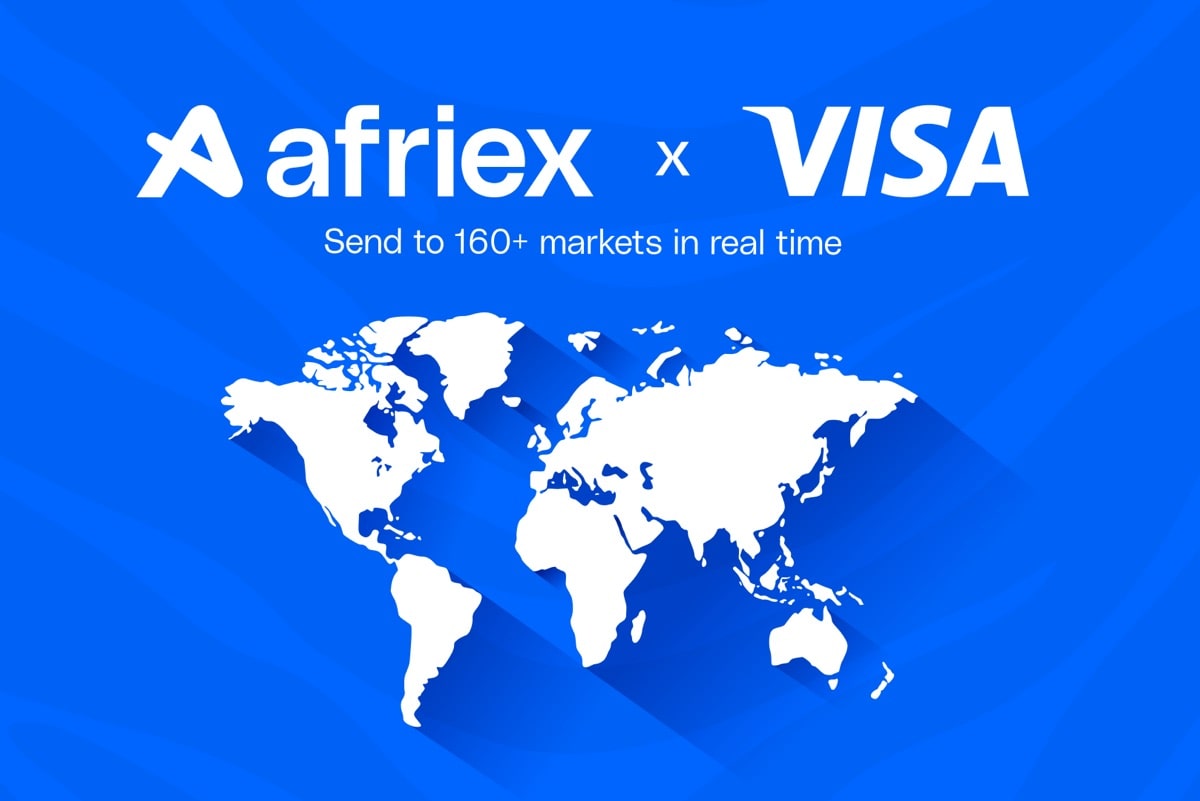Afriex’s new functionality is now live and available immediately via the Afriex mobile app, enabling users to send cross-border payments seamlessly and securely through Visa Direct.

Afriex, a global fintech platform with an international money transfer focus, has announced a collaboration with Visa, a world leader in digital payments, to facilitate real-time cross-border transactions in more than 160 markets. The integration of Visa Direct through Afriex’s financial institution partner expands the company’s global reach, allowing individuals and businesses to send and receive funds instantly across participating Visa endpoints.
Through this collaboration, Afriex users can now deliver funds in real time to eligible Visa accounts, connecting to billions of endpoints worldwide. The initiative supports Afriex’s mission to make international payments faster, more accessible, and cost-efficient, while leveraging Visa’s established infrastructure for reliability and scale.
The announcement comes as global remittance flows continue to show resilience. According to the World Bank’s latest Migration and Development Brief, remittances to low- and middle-income countries (LMICs) grew by an estimated 3.8% in 2023, reaching $669 billion, supported by strong labor markets in advanced economies and Gulf Cooperation Council countries. The United States remained the largest source of remittances, while India ($125 billion), Mexico ($67 billion), China ($50 billion), the Philippines ($40 billion), and Egypt ($24 billion) were the top recipient countries.
Regional trends indicate moderate growth across most regions, with Sub-Saharan Africa recording a 1.9% increase to $54 billion, driven by gains in Nigeria, Ghana, and Kenya, while Latin America and the Caribbean saw an 8% rise to $156 billion. The World Bank projects that remittance growth to LMICs will soften to 3.1% in 2024 amid inflationary pressures and weaker job markets in high-income countries.
Remittance costs remain a major challenge. On average, sending $200 costs 6.2%, with banks remaining the most expensive channel at over 12%. Mobile operators, by contrast, offer significantly lower costs at around 4.1%. Initiatives like the Afriex–Visa Direct integration aim to close this gap by providing faster and more affordable digital transfer options.
Founded in 2019, Afriex initially leveraged crypto and stablecoin mechanics to reduce cost and speed of cross-border transfers, bypassing traditional payment networks like SWIFT by buying crypto in one country and selling it in another to arbitrage exchange rates.
Today, the payment startup has turned to a hybrid model. Although it still uses crypto/stablecoin-style plumbing where that’s efficient, the firm has also added traditional payment rails, like Visa Direct, to extend reach, improve delivery to card endpoints, and simplify compliance/settlement in corridors where card networks are preferable.









